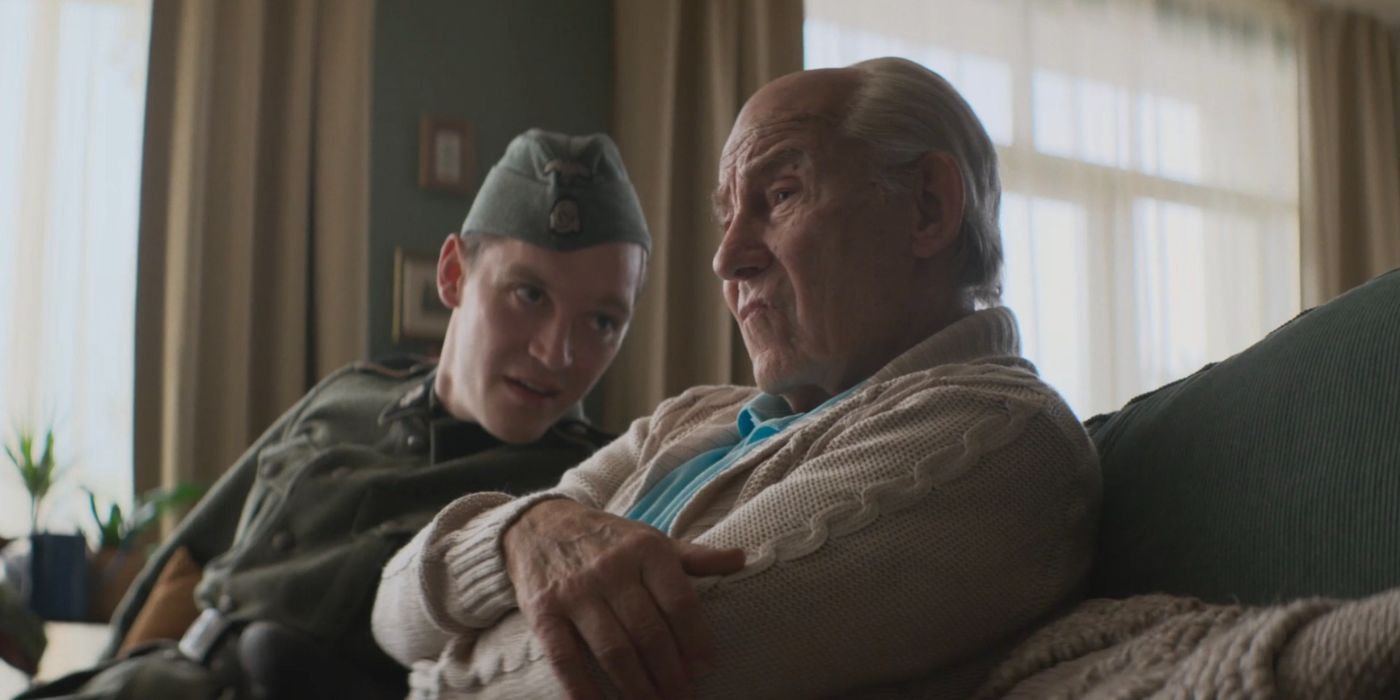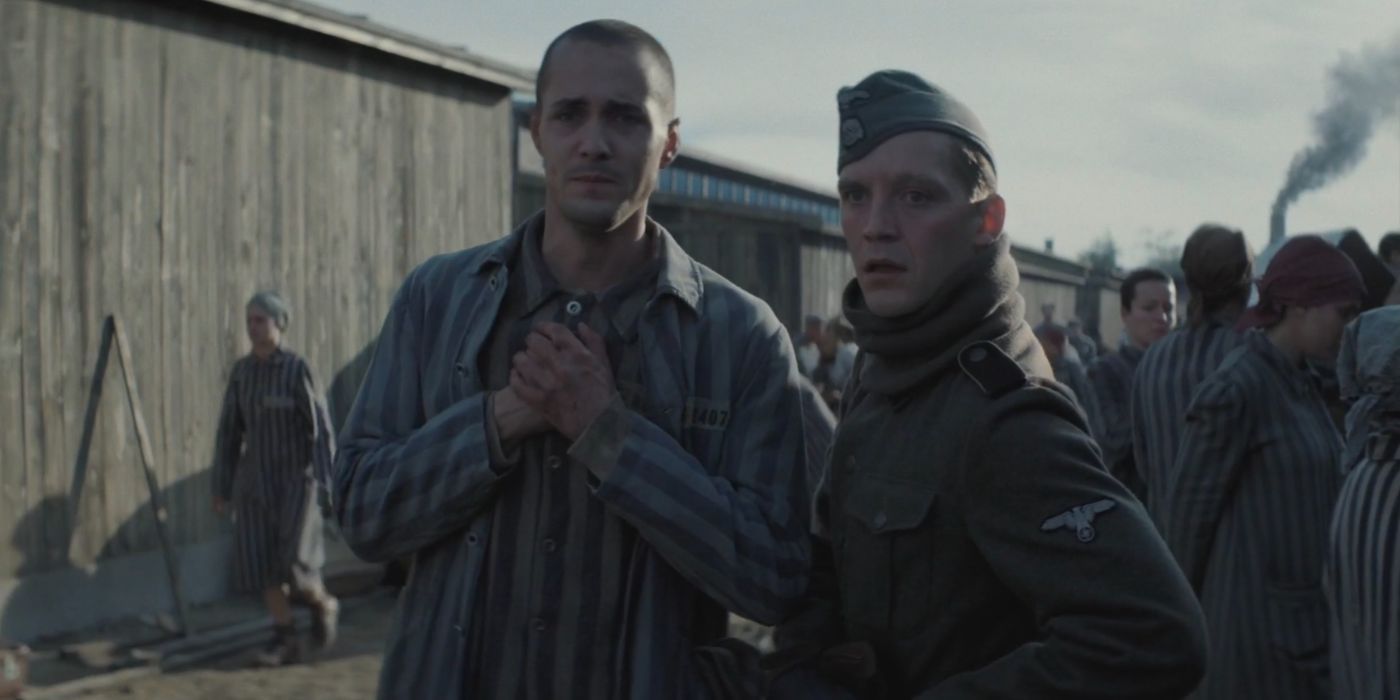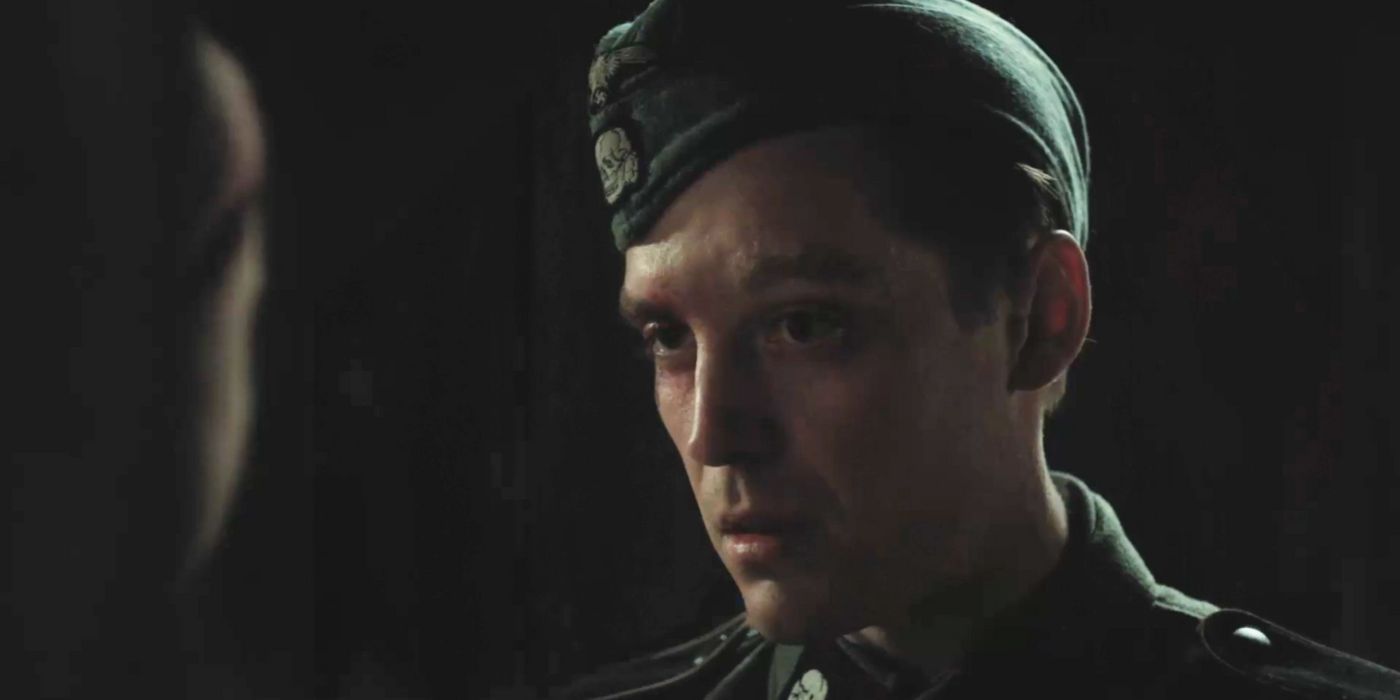The Tattooist of Auschwitz
Summary
The brawny diachronic dramaThe Tattooist of Auschwitzoffers an unflinching look at the repugnance of the Nazi regime ’s most infamous concentration summer camp , but in doing so march that even in the grimmest scope in human story , lovemaking and kindness can shine . base on the 2018 novel of the same name , The Tattooist of Auschwitzdepicts a storey from the memories of the material Lali Sokolov , a Slovakian Jew who survived more than two years in Auschwitz . Sokolov was thetätowierer , the somebody responsible for for tattooing identification routine on incoming captive at the ill-famed death camp .
Lali ’s take military unit is his love for Gita , a fellow Slovakian Jew he fell in dear with directly while tattooing her arm . Lali and Gita are able to carefully develop a family relationship in the camp thanks to the kindness of fellow prisoners , and even the help of a Nazi SS guard . Lali and Gita survive care , sickness , and untold cruelty before at last finding each other again outside the camp and build a life together . Decades later , Lali unveil his history to an shoot for author , and in the process confronts the guiltiness he ’s lived with his entire lifespan .
The harrowing biographic dramatic event The Tattooist of Auschwitz sport spectacular functioning from both familiar faces and relative unknown .
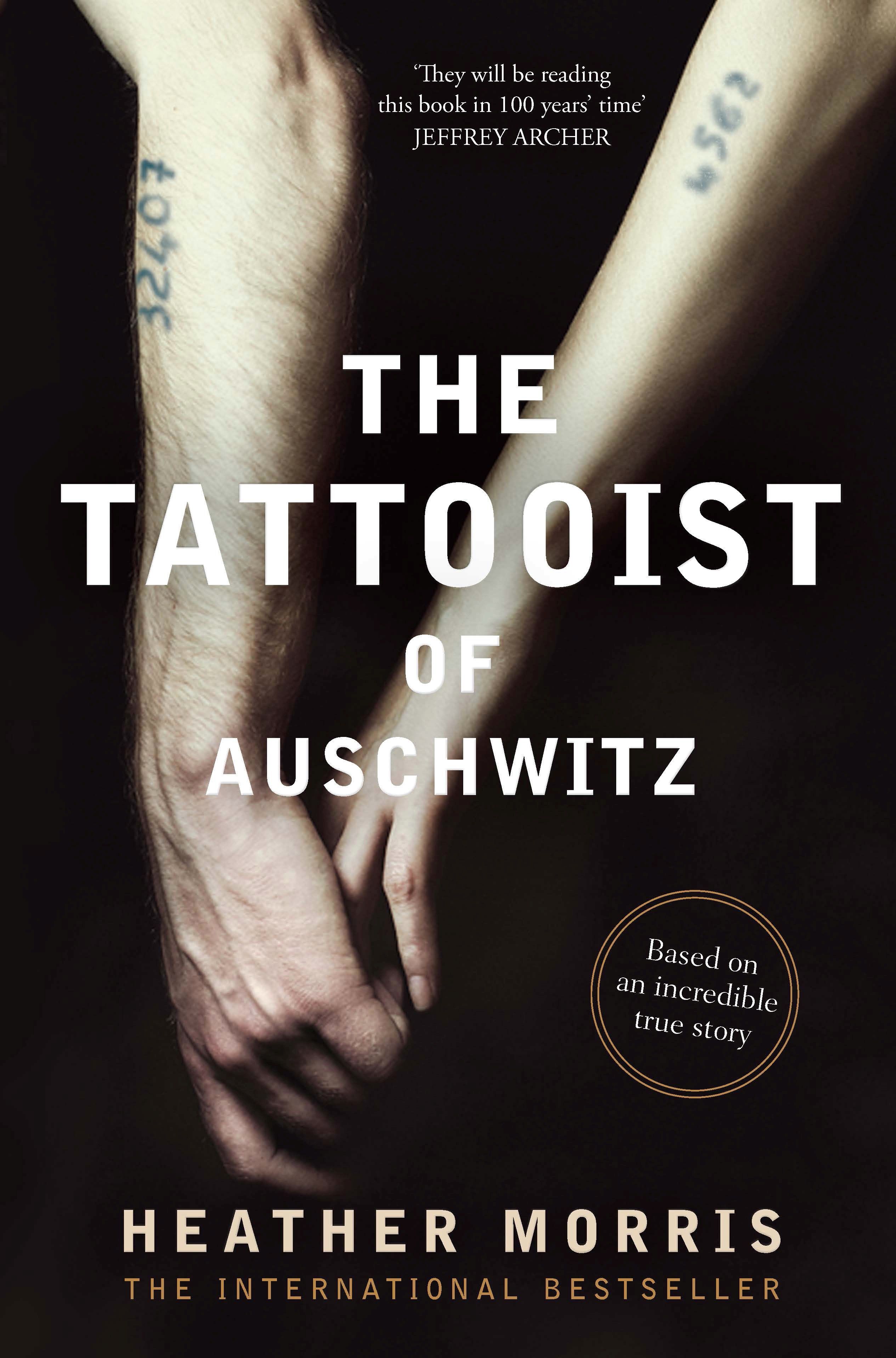
The Significance of Lali Sokolov’s Final Vision Explained
Lali experienced a happy memory
As the older Lali Sokolov ( Harvey Keitel ) talks through his memories with Heather Morris ( Melanie Lynskey ) , he is harass by visions of citizenry from his past , who appear in the way with him and spill to him . For most of the time he ’s talk to Heather , the visions are unpleasant , andappear as he recount a peculiarly afflictive point of his story . In fact , the most usual vision is that of the Nazi SS sentry duty who acted as his manager , Stefan Baretzki .
His final vision , however , is the precise opposite . Lali expire into his bedroom to find a happy and smiling Gita ( Anna Próchniak ) cradling their baby son Gary , seem as endearing as she did in 1961 when Gary was bear . Now an old humans , his face light up before lying down next to his beloved wife and their son , and he closes his eyes for the final sentence .
All episode ofThe Tattooist of Auschwitzare now streaming on Peacock .

Custom image by Debanjana Chowdhury
This happy vision stick out in arrant contrast with the old gruesome memories he relived in the course of his conversation with Heather . It swear out asan indication that he had unburdened himself of the sorrow and guiltthat he had transmit for so long . He is reunite with Gita at a sentence when they were at their happiest , free of the tragedy their love was bear from .
What Lali’s Visions Symbolized
Lali’s past revisited in the form of various people
While that concluding imaginativeness was pleasant , most of the ghosts of his past that appear during his conversations with Heather are not . The vision are a reflection of his guilt , which comes in many unlike pattern . Lali has an acute version of subsister ’s guilt , as evidenced by his vision of Tomas , who cue Lali that Aaron ( the prisoner who had save Lali ’s life when he was disgusted with typhus ) was selected for death quite literally in position of Lali . The older Lali ’s reduplicate visions of Baretzki mouth to a different form of guilt .
As a tattooist of the pack , Lali was yield privilege and access that his fellow prisoners were not . That superfluous exemption and security fare at the price of working for the Nazis as part of the greater machine that ran the last camp . One of the primary reasons Lali never share his story until ten after it come about was due to his impression and veneration that he would be seen as a Nazi pardner ; Lali feel guilty for being complicit in the atrocities done to his own multitude , andBaretzki acts as a reflection of his own conscience .
The Importance of Lali’s Role As The Tattooist
Lali’s job at the camp carries metaphorical significance
While there were several different jobs that a Judaic prisoner at Auschwitz could have , which placed them above their fellow prisoners , Lali ’s job as a tattooist carries an additional degree of complicity . Of all the miserable crimes trust against the many prisoners at Auschwitz , one of the most heinous was the baring of their humanity . By reducing every somebody to no more than a numeral on their limb , no different from cattle , the Nazis took away the very matter that made them human beings : their identity .
As the person responsible for placing that designation number on each prisoner , Lali was a major cog in the machine designed to exterminate an entire race of citizenry . The placing of that number symbolically bare off a person ’s chronicle , personality , values , relationships , and dreams , and made them a simple statistic in the judgment of the Third Reich . Lali is show say " I ’m sorry " to each prisoner he tattoo , meaninghe see the gravity of what he is doingbeyond the pain of the needle . It ’s at the core of the guilt trip he carries for the rest of his living .
The Prisoner Portrait Shots In The Tattooist of Auschwitz Explained
The haunting camera technique served multiple purposes
One of the most bowel - wrenching element ofThe Tattooist of Auschwitzis the litany of hot portrait shots of captive that are sprinkle throughout the show . The first intent served by the captive looking right into the camera is tosignify that the person had died . In the caseful of masses find in the show ( like Tomas or Aaron ) , the look into the television camera and follow Vanessa Bell concluded their story , even if they met their end off - camera . For those not previously watch in the show , they but serve the function of reminding the viewer to attend beyond the routine .
Roughly 77 % of all Judaic citizen of Slovakia in 1940 ( like Lali and Gita ) were slay in the Holocaust .
It ’s light to produce benumbed to the staggering scale of measurement of the Holocaust ; the Nazis bump off over 11 million people , over 1 million at Auschwitz alone . The parade of prisoner close - ups throughout the show area reminder that behind every undivided statistic there was a living , emit personwith a rich animation and chronicle that was erased untimely by the Nazis . It ’s a powerful gadget that underscore the grandness of bearing witness to the tragedy despite the show ’s focus on a dearest storey .

The Tattooist of Auschwitz is the true story of Lale Sokolov, a Jewish prisoner who was forced to tattoo the ID numbers on the other prisoners at the concentration camp during World War II. The series is based on the novel of the same name from author Heather Morris.
Why Baretzki Really Helped Lali & Gita
He did so at great personal risk
Jonas Nay ’s sadistic SS guard , Stefan Baretzki , is challenging due to the rank excitableness of his fiber . The young soldier is shown tormenting prisoners and bump off them independently , and seems to delight in his work ; after he forces Lali into a gas bedchamber to read the number on a dead captive ’s arm , he joke that Lali is the first Jew to walk out of the chamber alive . It seems unpaired that he would hazard his own security and location by assisting Lali and Gita in any way .
Yet he does so in exchange for , at first , something as trivial as advice on how to talk to woman . Baretzki ’s kinship with Lali seems born entirely out of lonelinessand , to some degree , ignorance . The real Stefan Baretzki was sample during the Frankfurt Auschwitz Trials , and the Margaret Court labeled him a " simpleton " , which is something that was dribble over inThe Tattooist of Auschwitz . That Baretzki could ever think that Lali would help him outside the summer camp is a testament to his ignorance . He may have helped Lali , but it was n’t due to any good in his tenderness .
Did Lali Testify On Behalf of Baretzki During The Frankfurt Auschwitz Trials?
The Nazi guard asked him to via a lawyer
Stefan Baretzki was indeed tried in the Frankfurt Auschwitz Trials , and hereceived a lifespan sentence for his function in the crimes commit at the death camp . He finally committed felo-de-se in prison house in 1988 . While the existent Stefan Baretzki may have never reached out to Lali to testify on his behalf in the 1960s , the scene at the goal ofThe Tattooist of Auschwitzwhere Lali is approached by Australian police force officer with the legal request from Baretzki ’s attorney serve well an important role .
Lali and Gita ’s confrontation over the request from Baretzki spirals into a greater argument about how Gita wants to gossip Europe and Lali does n’t , and she does indeed go without him . Baretzki serves as the ultimate avatar for Lali ’s guilt , as it ’s imply that while Lali make out that Baretzki was a homicidal monster , he feels obliged to mention to the courts that he would n’t be alive if not for the SS guard . Baretzki ’s request is the most significant reminder of Lali ’s own complicity , and it demo how much it threatens to countermine even his relationship with Gita years after .
The Real Meaning Of The Tattooist Of Auschwitz’s Ending
WhileThe Tattooist of Auschwitzserves as a necessary admonisher of the horrors of the Holocaust , the fundamental takeaway is not despair ; it ’s Leslie Townes Hope . Lali and Gita ’s journeying of survival is not one that they could have accomplished alone . It convey the kindness of many people for their love to brandish , and that kindness was pervasive in the show and in the real Auschwitz denseness summer camp . Sacrifices made for others are what made it possible for anyone to survive in that setting , as evidenced by Lali and Gita ’s friends risk their own life to save them .
Joy and love are central element that fix human beings , and their persistence in Auschwitz is proof that , despite all the Nazis ' best efforts , those elements ca n’t be stripped away .
At its heart , The Tattooist of Auschwitzis a testament to the human spirit . In the most bloodcurdling hell ever organise by the handwriting of military man , knockout and joy can still be come across . A baby was secretly bear against the formula and , through the efforts of many , was capable to survive and maturate . A young humans and woman fall in dearest at first sight , and have friends and allies willing to risk their own lives just so they can steal a few moments together . In the unforgiving darkness , luminousness can still gleam if there are those unforced and able to fight for it .
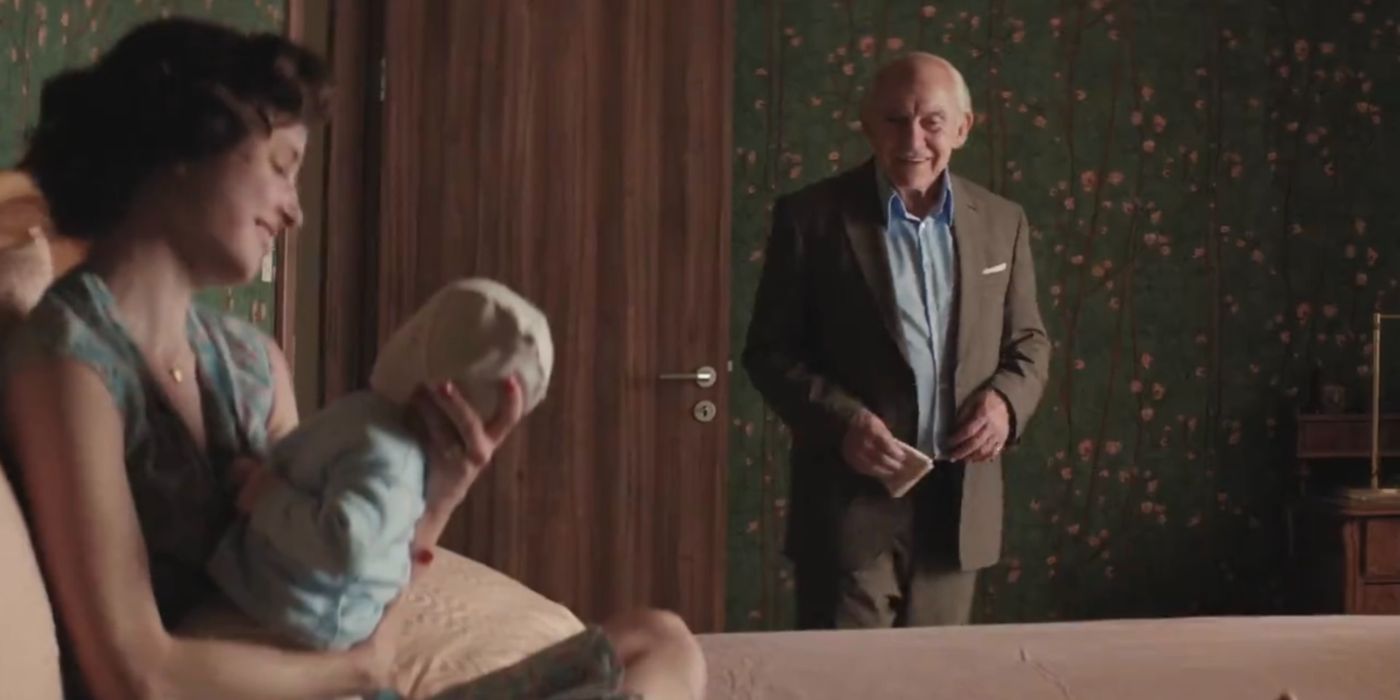
That pleasure and dearest is one of the central elements that defines humanity , and its persistence in Auschwitz is proof that , despite all the Nazis ' best efforts , those element ca n’t be bare away . A person can be robbed of their holding , their self-worth , and even their name , but never their convictions , impression , or the love they hold in their tenderness . The Tattooist of Auschwitzshows how the scars of tragedy and guilt may never fully heal , but they can be overcome with the armor of love and benignity .
Your Rating
Your remark has not been saved
Cast
The Tattooist of Auschwitz is the true fib of Lale Sokolov , a Jewish prisoner who was ram to tattoo the ID numbers on the other prisoners at the concentration camp during World War II . The serial is based on the novel of the same name from author Heather Morris .
